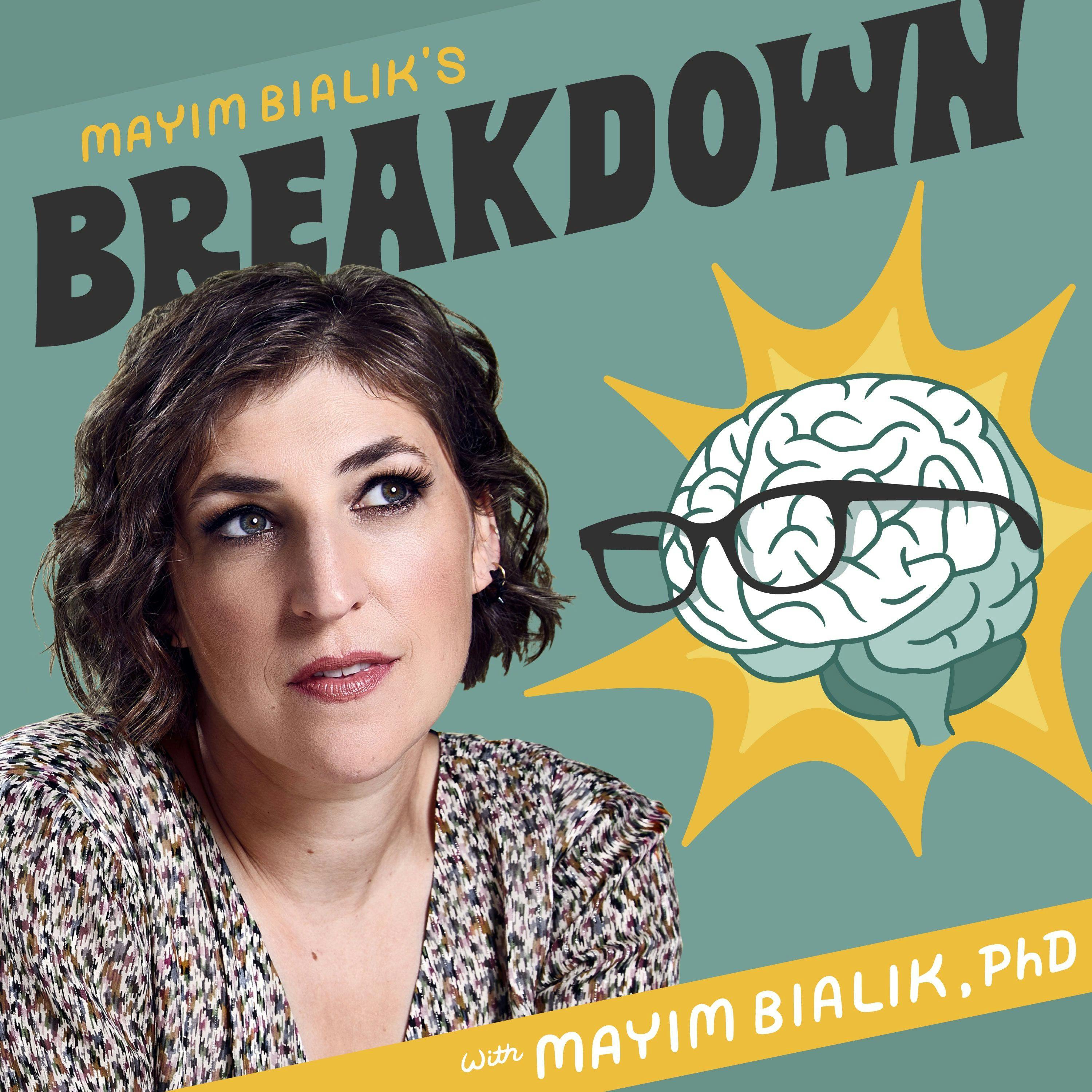.png)
The Rotary Spark Podcast
Welcome to our dedicated podcast for Rotary International's District 5750, designed to connect our community through the power of personal storytelling. Each episode celebrates the unique journeys of our fellow Rotarians and community members, highlighting their individual experiences, motivations, and the profound impact of their service and contributions.
Join us as we dive into heartfelt discussions with individuals from all walks of life, sharing stories that inspire and foster connection.
The Rotary Spark Podcast
#0002 - Nicholas Timme
Have you ever wondered how a simple pair of shoes can significantly impact a child's life? Join us as we sit down with Nick Timme, a passionate Rotarian and dedicated member of the Oklahoma Army National Guard, to uncover the powerful ripple effects of community service. Nick's journey with Rotary began with a friend's encouragement in 2015-2016, leading him to spearhead transformative projects like the shoe initiative for fourth graders in Midwest City. His story is a testament to the profound change that small acts of kindness can bring. Discover how his unwavering commitment to serving others extends beyond borders as he prepares for an upcoming deployment to Germany, where he plans to connect with local Rotary clubs and military civic organizations.
Our conversation with Nick sheds light on the remarkable synergy between Rotary Club funding and community impact. Through strategic fundraisers and employer support, Rotary members like Nick are able to initiate projects that bring meaningful benefits to their communities, such as painting houses and helping neighbors in need. Hear Nick's candid reflections on how minimal time and financial investments pave the way for greater societal change. This episode is brimming with gratitude and insights, reminding us of the boundless potential of collective efforts and the inspiring individuals driving these initiatives forward. Tune in for a heartening discussion that underscores the true spirit of community involvement and service.
This episode of the Rotary Spark Podcast is brought to you by Triger Media — helping individuals and businesses build a solid digital presence. From website design to social media management and podcast production, they provide the tools and support to share your story effectively. Triger Media works closely with clients to create something that feels true to their brand. Give them a call at 978-290-8200 to see how they can help.
http://trigermediaokc.com/
Triger Media
Web Design, Social Media & Podcast Services.
Disclaimer: This post contains affiliate links. If you make a purchase, I may receive a commission at no extra cost to you.
Welcome to the Rotary Spark Podcast. This is your host, Brian Triger, and with me today is Nick Timme. He's a fellow Rotarian and a member of the Oklahoma Army National Guard. How are you doing today?
Nick Timme:I'm doing well. How are you?
Brian Triger:Doing well. Thank you for asking.
Nick Timme:How did you first discover Rotary? So this was probably 2015, 2016 timeframe. I dipped my toes in Rotary a little bit back, when y'all were still meeting at Rose State College before they remodeled, so it was at least that long ago. But I went with a coworker of mine when I still worked at the credit union and we went a handful of times and then it just kind of faded out. And then I rediscovered it a couple of years ago when my friend Tegan was like come to Rotary and be a part of this and she suggested it as a really good idea and then it just kind of stuck.
Brian Triger:Very cool. Tell us a little bit more about the projects that you worked on with the Midwest City Rotary.
Nick Timme:Club Projects that I worked on with Rotary. I've been minorly involved in a handful of things, but something that I took the primary lead on was our shoes project. Every year Rotary donates enough money to purchase every fourth grader in the Middale school system a pair of shoes or not the Middale school system in Midwest City itself. We buy all fourth graders a pair of shoes and we give them out for free. We do like a little pomp and ceremony with it. This year we got a little behind because of logistical problems, but we were still able to complete the project.
Brian Triger:How many shoes were handed out?
Nick Timme:I forgot the exact number, but it was in the four or five hundreds.
Brian Triger:Tell us a little bit more about you know what you enjoy doing within the community and a little bit more about your responsibilities tied to the Oklahoma Army National Guard.
Nick Timme:In terms of things that I like to do in the community. I like anything that makes the community even marginally a little bit better. The idea behind, in my opinion, behind public service is making everything even minorly better is still an improvement over what it was.
Nick Timme:So if that's going out and painting somebody's house, that's out of code, which we did the other day. It was a citywide organized event. We went and painted a bunch of people's houses that lack the means to paint it themselves who have been having some code violation issues. We do that. I've done trash pickup days. Watch your neighbor's belongings, watch their house, their animals Take care of. I have a couple neighbors who are older so I do stuff with them to kind of keep their property together and go grocery shopping for them every now and again. Nothing particularly crazy, but just the things that make their life a little bit easier. That kind of creates a sense of community, knowing that we're looking out for one another in any way.
Brian Triger:When did you join the Oklahoma Army National Guard?
Nick Timme:I was thinking about it about a year prior to that, so I made this life decision rather irrationally. I overheard I was at a campaign event for a friend of mine and I overheard two people talking about their experiences in the National Guard deploying and doing this and saying it's really good for when you run for public office and things like that. I never even spoke to these people. They were literally having this conversation.
Nick Timme:I think I was sitting on the patio having a drink or something and they were like in two chairs kind of next to me and I was just hanging out just listening, uh, couldn't tell you who these people were, couldn't tell you their names, and I it just put the egg in my head of like, oh, I'm gonna sit on this for a little bit and and then it just got more serious.
Nick Timme:And then it finally happened. And then I went to basic training in October. I will actually go to Germany the same day that I went to basic training, just seven years later, which I thought was funny. I noticed that the other day. But then I came back from basic training in AIT. I was a public affairs specialist whenever I was enlisted, did that for a little bit, became a cadet whenever I went to go back to get my master's Joined ROTC commissioned in 2020 as a logistics officer and been doing a variety of logistical stuff ever since.
Brian Triger:Thank you for your service. You're being deployed to Germany next week. Tell us more about that, and do you plan on staying connected to Rotary when you're out there?
Nick Timme:So I do plan Rotary's. Rotary's big in Europe and there are at least two clubs that I'm aware of that are nearby the base that I'm going to has two towns attached to it, so each one has its own designated Rotary club. I do believe I've done a little bit of research on it, but I do plan to at least make contact a handful of times with each, just to kind of create that kind of international presence. I got flags the other day at our Rotary meeting to exchange with them. You know the whole flag exchange thing with other clubs.
Brian Triger:So I got a handful of those.
Nick Timme:My goal is to get rid of all of them. I think they gave me four, three or four, so I'm going to try and do that and I'll kind of send those back as I get them so that I don't have to kind of keep track of them as I'm out there. But there's also a lot of civic organizations that the military has internally, so a lot of integration programs to help people who have integrated, who are trying to integrate to the base. I'm sure I'll find myself caught up in that as I try to integrate myself. A lot of family support stuff because moving, especially to foreign countries, can be hard on families not really applicable to me, but they do exist. A lot of support systems for people who are away from their families, because not everyone's able to bring their family to Germany, so things like that. I'm sure I'll get my toes wet as I settle myself in.
Brian Triger:Thank you for sharing. Tell us more about the military base that you're going to tell us more about the military base that you're going to base is Grafenwöhr and it's over a little east of Nuremberg in Bavaria, the largest training site out is the largest allied training site in europe.
Nick Timme:It's kind Fort Sill like Fort Sill's 's big on a map, but only because they have so many ranges and stuff. Grawoehr is very big on a map because they have a lot of tank trails. I think they do a little artillery out there I'm not sure but for the most part it's big on tanks, so a lot of tank maneuvering.
Brian Triger:Cool. What are some things within Rotary that you'd like to see push forward and or change? If you were to give new, existing and prospective members some messages as to how Rotary can push forward in a positive way, what would your feedback be?
Nick Timme:I think I don't have much of an insight into the grander scheme of Rotary. I know we do good all around the world. We do good in our communities. I really don't have any personal constructive criticism on how it works. For the most part I'm just a meeting-goer with the occasional involvement in projects and stuff.
Nick Timme:and stuff I would say to prospective people is to see how rotary would fit into your life and try and carve out a little space for it in terms of projects, time commitment, things like that, because it'll be as busy as you want it to be or not as busy, because for the longest time I was just a meeting goer, an observer, kind of listened for projects that interest me and they approached me about a project and I didn't really feel like I had a reason to say no. Look for reasons to say yes.
Brian Triger:So thank you for sharing that. What's the most exciting aspect of moving overseas?
Nick Timme:I know for some people it would probably be a little intimidating, but I am ready for just the complete hard reset on my life, my social life Not to say I don't love the people here or love the community or anything like that, but I'm just in a position right now to just do a hard reset on everything, and especially in a foreign country that I've always wanted to go to. My grandparents lived in Germany in the mid-'80s when they were stationed out there, and my dad and aunts and all of them they lived out there for six years and they loved it. So growing up I always heard stories about Germany and this side or the other about Germany, so I'm really excited to go have like my piece of that experience as well. But I think it'll be good for me to just be able to grow as an adult with nobody around me. That I know I have to do a complete build from the bottom.
Nick Timme:Like I was saying earlier, this isn't a PCS or anything like that. This is an unaccompanied non-PCS tour where the only things that you can bring are what you can pack on the plane. So I'll have two duffel bags full of clothes and my backpack with my laptop, and that'll be about it.
Brian Triger:What does PCS stand for?
Nick Timme:PCS is Permanent Change of Duty Station.
Nick Timme:mainly for active duty people, but they have to clarify with whenever these Because how the process works is reserve component, because how the process works is reserve component. So National Guard non-AGRs, which are active guard reserves, reserve component non-AGRs, and then Army Reserve can apply through this government website that has all the position listings, all the deployments, all the mobilizations, everything that the active duty component is lacking. They try to recruit from the reserve component, so they'll put them on orders for however many days that is prescribed that they need and then you can go and volunteer for those. And that's how I got this position is. I was in a position to be able to take one of these tours, so I applied for a bunch of them and this one's the one that called me back and said you want to come to Germany? Very cool. So that's how that worked.
Nick Timme:But PCSing is traditionally reserved for the active component, because they're the ones who move every three or four years, and the guard always usually comes home to where they're at, which is a nice little luxury in it.
Brian Triger:Any last thoughts on Rotary?
Nick Timme:Nothing in particular. I haven't regretted it. The time commitment is negligible to me, so it's whatever. And the money aspect of it? For the most part my employer paid it until this new employment, but it's worth the money. Even just in the camaraderie side of it and all of the grander events that we do throughout the year, the money goes. From what I've noticed, the money goes to good purposes and we make sure that we spend it appropriately. At least in our club. We're not a frivolous club. Everything that we do for the most part goes into the community in one way or another or it goes into some sort of investment that we hope to capitalize and do a larger gain for the community itself. So like, for example, the shoe project is usually funded through a fundraiser breakfast and we pay for the breakfast.
Brian Triger:Nick, thank you for letting us interview you. We really look forward to seeing some pictures out there and we'll talk to you soon. Thank you, listeners, for checking into the second episode of the Rotary Spark podcast. I also want to thank the Almonte library within the Metropolitan Library System and IT Spark for making this possible. Have a great day, everyone.
Podcasts we love
Check out these other fine podcasts recommended by us, not an algorithm.

Hidden Brain
Hidden Brain, Shankar Vedantam
Radiolab
WNYC Studios
The Ramsey Show
Ramsey Network
Mayim Bialik's Breakdown
Mayim Bialik
NVIDIA AI Podcast
NVIDIA

